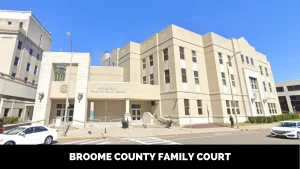Are Video Recordings Admissible in Family Court?
Family court cases involving divorce, child custody, and domestic violence often come down to one person’s word against another. In these “he said, she said” disputes, video recordings can potentially provide objective evidence to help judges and mediators make informed rulings. However, the admissibility of video evidence in family court is a complicated issue with rules that vary by state.
What Types of Recordings Are We Talking About?
There are a few main scenarios where one spouse may attempt to admit video evidence in a family law case:
Recordings of Abuse
Victims of domestic violence sometimes record incidents when their abuser assaults them physically or verbally. The videos may capture yelling, hitting, injuries, or threats. The spouse who did the recording may attempt to use the video as evidence of the pattern of abuse.
Recordings of a Parent Interacting with Children
A video showing a suspected unfit parent engaging in inappropriate discipline, neglect, drug use, etc. could be relevant in a child custody case. These types of videos are often obtained from nanny cams or security cameras.
Recordings of Conversations Between Spouses
A spouse may secretly record discussions they have with their partner to try to capture evidence of threats, contradictory statements, or confessions about hiding money or assets.
Why Would Someone Want to Submit Video Evidence?
There are a few motivations a person may have for wanting to submit video recordings in a family court case:
To Document Abuse or Unfit Behavior
Videos can provide powerful and objective evidence of misconduct, especially abuse, that allegations alone cannot prove. This evidence may help persuade the court to grant an order of protection or limit custody rights.
To Illustrate Psychological Issues
Videos capturing a person having a mental breakdown, violent outburst, or episode relating to an alleged psychological condition could help characterize that person as unstable and unsafe. This evidence could influence the custody arrangement the court orders.
To Catch the Other Party “In the Act” of Lying or Hiding Assets
Secretly recorded conversations, if admissible, could reveal one spouse threatening the other, discussing plans to hide money offshore, or providing contradictory information about finances or access to the children. This may undermine that spouse’s credibility or reveal improper behavior.
To Prove Their Side of a “He Said, She Said” Dispute
When one spouse accuses the other of misconduct but the accused spouse denies it, an authentic video could tip the scales in favor of the accuser by offering solid proof of what happened. This prevents the court from having to “take sides.”
What Are the Rules on Admissibility of Recordings?
The admissibility of video and audio recordings varies significantly across the U.S. Some general guidelines and restrictions include:
Consent
- In two-party consent states, it is illegal to record audio of someone without their knowledge. So those recordings would likely be inadmissible.
- One-party consent states only require one party to the conversation to consent to the recording – so you can record someone without telling them.
Hearsay
- Videos cannot be admitted if they contain hearsay, such as recordings where someone describes what a child told them a parent supposedly did. This is usually considered hearsay unless the child testifies.
Motions to Suppress
- Judges will exclude evidence proven to be unlawfully obtained or unfairly prejudicial. A spouse can file a motion to suppress a recording on these grounds.
Authentication
- There must be proof the video is authentic and not altered. This often requires testimony from the person who made the recording.
Best Interest Factors
- The recording must be deemed relevant to custody factors like parental fitness and the child’s safety and well-being. Salacious videos that do not pertain to these may be excluded.
Privilege Rights
- Conversations believed to be private may be protected by marital privilege or other confidentiality privileges that exclude them from evidence.
Do Courts Tend to Allow or Exclude Video Evidence in Family Cases?
- Many family court judges take a conservative approach when it comes to allowing video and audio recordings to be admitted as evidence in custody, divorce, and restraining order cases. They prefer to rely on documentation and testimony from counselors, teachers, doctors, and other professionals who have interacted with the family.
- However, judges certainly realize that recordings can provide vital evidence of dangers to children or abuse that witnesses did not directly observe. So most will allow recordings if their authenticity is verified and they directly relate to statutory factors affecting the welfare of the children or parties.
- There is a higher bar for admissibility though when recordings are obtained illegally or unethically, like via secret recording of a spouse without consent. In those cases, judges are more inclined to exclude the videos based on privacy rights and public policy grounds.
How Should You Try to Admit or Exclude a Recording?
If you intend to offer video evidence in a family law case, or want to prevent such a recording from being used against you, here are some tips:
Understand Consent Laws
- Know whether your jurisdiction requires one- or two-party consent so you can determine if the recording was obtained legally or not.
Focus on Relevance
- Be prepared to explain precisely what abuse, unfit behavior, contradictions, or other facts the recording captures that pertain directly to custody, divorce, orders of protection, or another matter before the court.
Authenticate the Video
- You will need to verify details like the date it was created, the participants in it, and affirm it is unaltered. Bring in witnesses like the person who made it.
File a Motion
- Don’t just spring surprise evidence at trial. File a motion in advance advising of your intent to submit a recording and explaining why it is admissible and relevant.
Argue Privacy Rights Have Been Violated
- If the video was obtained secretly and you believe it is prejudicial, argue it should be excluded based on marital privilege, confidentiality, and public policy protecting privacy.
Offer Alternate Proof
- If possible, have doctors, counselors, or other experts testify to corroborate what is shown in the video so the case does not hinge entirely on admitting it.
Examples of Family Court Rulings on Video Evidence Admissibility
Here are a few real examples of family law cases where courts reached different conclusions on allowing video evidence:
Harris v. Harris (2021)
- The wife secretly recorded the husband admitting he hid money in offshore accounts. Admitted because it spoke directly to his truthfulness and was relevant to divorce property division.
Owens v. Owens (2020)
- The husband recorded the wife acting intoxicated and negligently supervising their child. Excluded due to two-party consent rules making the recording illegal.
Clark v. Evans (2019)
- The wife submitted video of the husband yelling at their son. Admitted as directly relevant to the father’s parental fitness and the child’s best interest.
Thompson v. Jones (2018)
- The husband recorded the wife confessing to an affair. Excluded as prejudicial/inflammatory and unnecessary for deciding custody arrangement.
In Re: Marriage of Yates (2017)
- The wife recorded the husband threatening to harm her if she pursued divorce. Admitted as evidence warranting a restraining order.
Conclusion
The bottom line is video and audio recordings can be vitally important evidence in family court cases – but only if they are legally obtained, authenticated, directly relevant to matters like custody and abuse, and more probative than unfairly prejudicial. Given the extremely high stakes involved with protecting children and victims of domestic violence, family court judges have significant discretion to either admit or exclude recordings on a case by case basis. If you are considering attempting to use video evidence in a family law matter, retain an attorney experienced in that complex and evolving area of evidentiary law.
Frequently Asked Questions
What are the main ways video recordings arise in family court cases?
- Recordings of abuse, recordings of interactions with children, and secret recordings of conversations between spouses are the most common types of video evidence parties try to submit in family court.
Why might someone want to admit a recording as evidence?
- To document abuse, show psychological issues, catch a spouse lying, or corroborate their side of a disputed incident. The videos can provide powerful proof.
What rules typically apply to admitting recordings in family court?
- Consent laws, hearsay exclusions, authentication requirements, relevance to children’s welfare, and marital privilege rules are some of the key considerations.
Are judges open to allowing video evidence?
- Many prefer other forms of proof like testimony. But most recognize recordings can capture vital evidence, so they will admit them if legally obtained and directly relevant.
How can you get a recording admitted or excluded?
- Understand consent laws, focus on relevance, authenticate it, file a motion in advance, argue privacy rights, and have experts corroborate it if possible.






